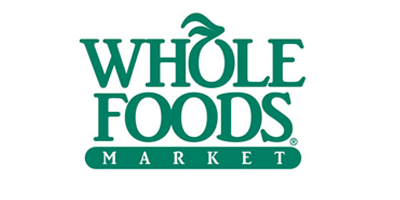Top Class Actions’s website and social media posts use affiliate links. If you make a purchase using such links, we may receive a commission, but it will not result in any additional charges to you. Please review our Affiliate Link Disclosure for more information.

Lead plaintiff Robert Pratt filed the Whole Foods class action lawsuit on Nov. 2, 2012, accusing Whole Foods of selling a number of products with misleading labels. Davila upheld most of his claims against Whole Foods, including those alleging the company mislabeled a number of its food products as natural when they contained artificial ingredients, and as containing evaporated cane juice, though it is really sugar, in violation of California’s Unfair Competition Law, False Advertising Law and Consumer Legal Remedies Act.
His allegations are based on both the 2009 U.S. Food and Drug Administration (FDA) warning to food makers that companies should not use the term “evaporated cane juice” because it is false and misleading, violates labeling requirements, and is not juice; and the 2011 FDA warning that The U.S. Food and Drug Administration [FDA] has issued a warning that a food product labeled as “natural” or “all natural” may be “false and misleading, and therefore… misbranded” if it contains anything “artificial or synthetic” or something “not normally expected to be in the food.”
Pratt had also claimed Whole Foods’ “no sugar added” label statements were false and misleading, but as this statement was on a product that Pratt did not actually purchase — 365 Everyday Value Whipped Topping — Judge Davila ordered on Aug. 30, 2013, to dismiss the “no sugar added” claim with prejudice.
The products Pratt purchased from Whole Foods that form the basis for this class action lawsuit include chicken broth, tomato ketchup, organic ketchup, apple cinnamon instant oatmeal, cola, ginger ale, root beer and natural Italian soda.
Davila wrote in his decision that the Whole Foods class action lawsuit has two “prongs:” “the ‘unlawful’ prong, claiming that defendants’ packaging and labels violate state and federal laws, making the products ‘misbranded’ and therefore illegal to sell, possess, lack economic value, and legally worthless,” and “the ‘fraudulent’ prong, claiming that the labels are misleading, deceptive, unfair, and fraudulent.” Whole Foods has argued that these claims were implausible, not filed with the necessary “particularity,” and could not be heard because FDA rules preclude it. Whole Foods also argued that unjust enrichment could not be claimed in California.
Davila did not agree with Whole Foods’ arguments, except on the unjust enrichment claim. He wrote, “numerous courts in this district have rejected the idea that unfair competition claims based on ‘natural’ type labels are expressly preempted by FDA regulations,” and that “complying with the demand requested by Plaintiff in this cause of action would not require that Defendants undertake food labeling or representation different from the provisions of the FDCA or the rules and regulations promulgated by the FDA.” In other words, the FDA rules do not preempt the class action lawsuit from continuing.
With regards to the “unlawful” prong, Davila wrote, “under the “unlawful” prong of the UCL, a plaintiff must plead reliance when claims are premised on allegedly deceptive advertising… if the court held that a plaintiff ‘has standing to bring claims based solely upon allegations that he would not have purchased a product that was misbranded, purchasers who never ‘viewed the defendant’s advertising’ or misleading labeling would have standing to sue.'” And with regards to the “fraudulent” prong, he wrote, “The Court finds that the ‘natural’ labels may deceive a reasonable consumer, the claims are properly pled, and the claims are inappropriate to resolve at the motion to dismiss stage.”
Pratt is represented by Pierce Gore of Pratt & Associates.
The Whole Foods mislabeling class action lawsuit case is Pratt v. Whole Foods Market Inc., Case No. 5:12-cv-05652, in the U.S. District Court for the Northern District of California.
UPDATE: Whole Foods filed a motion May 27, 2014 to dismiss the proposed class action lawsuit, saying the FDA’s recent announcement that it is re-examining the food label term “evaporated cane juice” puts the case out of the court’s jurisdiction.
ATTORNEY ADVERTISING
Top Class Actions is a Proud Member of the American Bar Association
LEGAL INFORMATION IS NOT LEGAL ADVICE
Top Class Actions Legal Statement
©2008 – 2024 Top Class Actions® LLC
Various Trademarks held by their respective owners
This website is not intended for viewing or usage by European Union citizens.















3 thoughts onWhole Foods Must Face Deceptive Labeling Class Action Lawsuit
Add me
Additional issues can be found on the deceptive labeling on their Whole Catch Sockeye smoked salmon – which is called Wild Alaskan – Traditional, which is farm raised
UPDATE: Whole Foods filed a motion May 27, 2014 to dismiss the proposed class action lawsuit, saying the FDA’s recent announcement that it is re-examining the food label term “evaporated cane juice” puts the case out of the court’s jurisdiction. More info: http://topclassactions.com/lawsuit-settlements/lawsuit-news/28711-whole-foods-says-deceptive-labeling-class-action-lawsuit-falls-short/